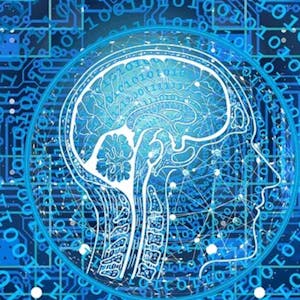This course on Unsupervised Machine Learning offers a comprehensive introduction to one of the main types of machine learning. Students will gain practical knowledge of clustering and dimensionality reduction algorithms, enabling them to derive insights from unlabeled datasets. The course emphasizes the hands-on application of best practices, preparing aspiring data scientists for real-world scenarios.
The modules cover various topics such as distance metrics, computational hurdles, selecting clustering algorithms, and nonlinear and distance-based dimensionality reduction. Learners will explore matrix factorization and engage in a final project, allowing them to apply their newfound skills in a practical setting. By the end of the course, students will be adept at explaining the problems suitable for unsupervised learning approaches and implementing relevant algorithms in a business context.
Certificate Available ✔
Get Started / More Info
The Unsupervised Machine Learning course modules cover a range of topics, from introduction to unsupervised learning and K Means to distance metrics, selecting clustering algorithms, dimensionality reduction, and matrix factorization.
This module introduces learners to unsupervised learning and K Means, providing an overview of use cases of clustering and guiding them through the K-Means algorithm. Learners will also delve into the Elbow method and the Mixture of Gaussians, gaining practical experience through interactive activities and practice labs.
Module 2 focuses on distance metrics and computational hurdles, covering various distance metrics such as Euclidean, Manhattan, Cosine, and Jaccard. Learners will also explore the curse of dimensionality and engage in practical labs to deepen their understanding of these concepts.
This module delves into the selection of clustering algorithms, including Hierarchical Agglomerative Clustering, DBSCAN, and Mean Shift. Learners will compare the performance of these algorithms and gain hands-on experience through practice labs and demos.
Module 4 provides an overview of dimensionality reduction techniques, with a focus on Principal Component Analysis and Singular Value Decomposition. Learners will engage in practical labs to apply these techniques and gain a deeper understanding of dimensionality reduction.
Learners will explore nonlinear and distance-based dimensionality reduction techniques, such as Kernel Principal Component Analysis and Multidimensional Scaling. The module includes practical labs to reinforce learning and application of these techniques.
This module covers matrix factorization, including Non Negative Matrix Factorization, and engages learners in practical labs and demos. Learners will gain a comprehensive understanding of matrix factorization techniques and their applications.
The final project module provides an opportunity for learners to apply their knowledge and skills in a practical setting, reinforcing their understanding of unsupervised machine learning techniques through a hands-on project.
AI in Healthcare explores the transformative potential of artificial intelligence in patient care and diagnoses, offering insights for healthcare providers and computer...
Learn to model time series with ARIMA, predict future values, and understand the significance of time series models for data scientists.
ML Pipelines on Google Cloud - 日本語版 is a comprehensive course that delves into cutting-edge ML pipeline orchestration using TensorFlow Extended (TFX) and...
Explore Support Vector Machines with scikit-learn and Python in this hands-on project on Rhyme, mastering the theory, building models, and creating a facial recognition...